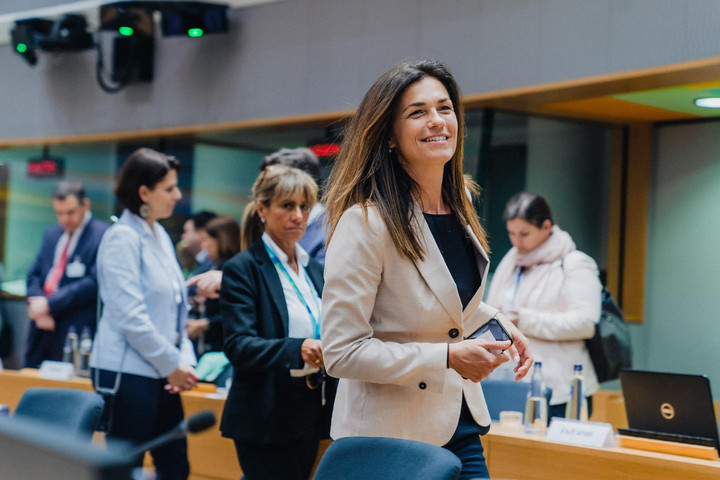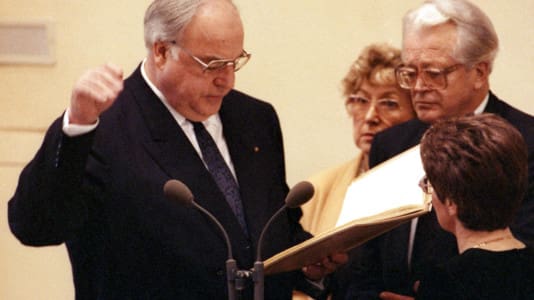The European Commission is targeting Hungary once again, holding a hearing on rule of law on Monday where it claimed the country violated European values over the last year, especially in regard to LGBT rights and alleged corruption.
Known as Article 7 of the founding EU treaty, Brussels launched proceedings against Viktor Orbán’s government four years ago, but Budapest continues to fight back and hold its ground.
“The most important message is that on April 3 Hungarians have decided,” Varga said while speaking in Brussels on Monday at a meeting of the ministers in charge of EU affairs. “People are also following European events, and their response to the Article 7 procedure is that they support the Hungarian government’s policy on Europe and on all other issues related to the rule of law.
“They know that what the Hungarian national conservative government is doing is good for the Hungarian people. And a mandate of more than 3 million voters overwrites everything and gives the right answers to everything.”
Varga has pointed out that the procedure is mostly being pursued by the left in Brussels, with the end goal of changing the government in Hungary.
“The Article 7 procedure is starting to get bothersome for those who have launched it, a process that has long gone beyond an analysis of each other’s legal systems, but instead represents political pressure initiated by the left-wing majority in the European Parliament. And only political answers can be given to political questions,” she pointed out, adding that the response of the Hungarian people was that after 12 years, they had voted for the same government again, with a historically high number of votes.
According to Hungarian news outlet Maygar Hirlap, Hungary’s justice minster stressed that “it should not be overlooked that the referendum on child protection even preceded the support of government parties, as more than 3.6 million citizens voted to protect children.” She added that Monday’s hearing on the rule of law in Hungary as part of the Article 7 procedure “is not appropriate in a situation where there is war in the neighborhood and Hungary is offering all the help it can, but the country remains ready to answer any questions in a spirit of cooperation.”
She added that the hearing was a “dialogue of the deaf.”
While Article 7 procedures are unlikely to lead to sanctions, the EU is also separately looking to block funds to Hungary through the rule-of-law conditionality mechanism.
Hungary looks to block energy sanctions on Russia
The Hungarian government is also continuing to block energy sanctions on Russia. According to Varga, who spoke the issue of further sanctions against Russia can only be enacted if the national conditions of each country and their unique own energy mix requirements are respected. The head of the Hungarian justice ministry pointed out that the number one priority for Hungary is to guarantee energy supply and energy security, not only in the short term, but also in the medium and long term.
Asked about German Vice-Chancellor Robert Habeck’s suggestion that Germany would be willing to support a European Union embargo on Russian oil without Hungary, Judit Varga said: “Unfortunately, there are some — mostly left-wing — politicians whose political perceptions lack the European values of cooperation based on a culture of consensus and mutual respect.”
“An issue like the oil embargo, about which Hungary communicated in the most sincere and transparent way from the first minute, cannot be talked about in such an arbitrary and exclusionary tone,” she said.
Hungary is heavily reliant on Russian gas and oil in order to keep the country running, with 65 percent of the country’s oil and 85 percent of its natural gas coming from Russia. If a Russian gas and oil embargo were enacted, fuel prices would rise an estimated 55 to 60 percent.
Hungarian oil refineries would also have to be completely technologically transformed at a cost of €500-€550 million in order to process other forms of non-Russian oil, and the capacity of the oil pipeline from Croatia would have to be increased at an additional cost of €200 million. The total cost of transforming Hungary’s energy sector would run as high as €18 billion.
She indicated that “science and facts” should prevail in this issue.
“Hungary has no access to the sea, but the energy supply must be secured, so we are waiting for the solution they propose first, and only then can we move on to the sanctions proposals. Decisions must be taken in the interests of all member states,” she emphasized.
Hungarian Prime Minister Viktor Orbán has also expressed that any gas and oil sanctions would hurt Hungarian and European families the most.
“The extension of sanctions to the energy sector, oil and gas sector would be a disproportionate burden for Hungary. That is why I have made it clear that we condemn Russia’s armed attack, we also condemn the war, but we will not allow the price of the war to be paid to Hungarian families! Therefore, sanctions should not be extended to oil and gas,” he said.





